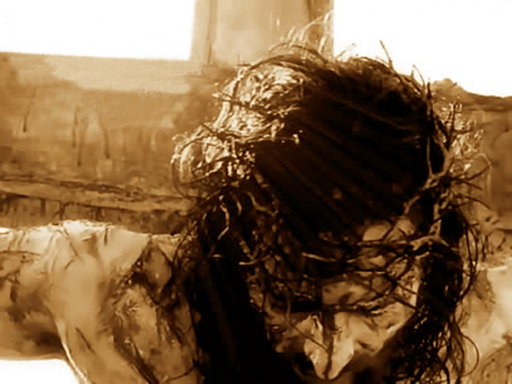The American Dream is derailing the American Church.
The American Church is losing her way. I write this in hopes of helping some of us get back on track. In recent days our passion, even anger, around non-core issues has revealed that we’ve forgotten who we are and Whose we are. Our early brothers and sisters knew that they were “aliens and sojourners” (1 Peter 2:11) in a foreign land. Not once do we see them demanding that the Roman government get on board with their agenda. I can’t imagine Paul thinking, “If we could only get the right emperor on the throne in Rome we could finally advance this Gospel.” Instead, he taught what Peter, and every other apostolic leader taught, that in Christ we now belong to “a chosen race, a royal priesthood, a holy nation, a people for His own possession, that you may proclaim the excellencies of Him who called you out of darkness into His marvelous light” (1 Peter 2:9). Jesus said, “My kingdom is not of this world. If my kingdom were of this world, my servants would have been fighting, that I might not be delivered over to the Jews. But my kingdom is not from the world” (John 18:36). I think Jesus would tell us we’ve been fighting the wrong battle, with the wrong weapons.
If our deepest emotions reveal our idols, then the current anxiety, and anger of some, has exposed our misplaced values. Augustine defined sin as “disordered love”, having highest affections for good things, but not the Supreme thing. Instead of a passion for Christ as Lord and a devotion to love as He has loved us, it seems we’ve come to believe that the kingdom will be ushered in through the White House, rather than through God’s House – through God’s people.
We’ve baptized our own version of the American Dream, with our own American Jesus. The American Dream, that has produced (in my view) the greatest country on earth, has created a national ethos founded on the wonderful ideals of freedom, prosperity, and success for all. Driven by a desire for “life, liberty and the pursuit of happiness”, Americans have opportunities that others around the world can only imagine. Today, we pause to thank God for those who have gone before us who have established the God-given principles that guide us. But let’s be sure that we separate the Bible (that helps us live as “aliens and sojourners”, following Jesus every day) from the Constitution (that helps us live as law-abiding Americans everyday).
In his book, “On Two Wings”, Michael Novak explains the context out of which the “American Experiment” was born. Novak states that the way American history has been told for the last century is incomplete. Secular historians have “cut off one of the two wings by which the American eagle flies.” The founding generation established a compact with the God of Israel “and relied upon this belief. Their faith is an indispensable part of their story.” But, as aliens and sojourners, we must remember that there were two wings that established the greatness of America. If one wing was a Judeo-Christian (mostly Christian) ethic and biblical worldview, the other was driven by the Enlightenment, with an emphasis on reason, a secular point of view detached from God. John Adams and others, representing the Christian wing and James Madison, Thomas Jefferson, and others representing the secular wing, hammered out through compromise, a constitution they could all agree upon. Indeed, history has proven it was brilliant and unmatched.
Christians today need to remember two things: First of all, the Constitution is not our Bible. The Constitution governs our nation while the Word of God governs our daily lives. Secondly, we need to recognize that diversity was a central part of our Constitution from the beginning. Therefore, everyone has a seat at the table. The atheist, the Muslim, the Buddhist, the homosexual, the straight, the Christian, the agnostic (you name it), all have a seat at the table. If we pause to consider what we love so much about America and what true religious freedom really is, we realize it must be this way. Christians today need to understand the rules of the game. The great tragedy in our nation today is that we can’t sit down with tolerance and enter into conversation. This is true on all sides of the table. Christians should model a different way, one that James described as being “quick to listen, slow to speak, and slow to become angry” (James 1:19). In fact, it’s possible to agree constitutionally with a decision made by the Supreme Court and at the same time, disagree with it biblically (again, the constitution is not our Bible). The frustration for many Christians today is that it seems we’re no longer able to leverage political power to help make substantial decisions that sway public policy and opinion. But we need to recognize that it’s never been that way, not regarding decisions that will ultimately change the course of our nation and the advancement of the Gospel. The Gospel will advance (as it does in every nation) as followers of Jesus live their lives fully devoted to Him, sharing His Gospel with a lost and dying world. We need to be able to move into the new normal with a balance of grace and truth. Only Jesus, Himself “full of grace and truth” lived this out perfectly. So, as we fail to do so, may we constantly point to the One who did so perfectly on our behalf. Let’s point them to Jesus who is not simply our Example but our Substitute. He alone has lived the perfect life for us, taking on our sin and shame upon the cross, and rising again so that we too might live as a resurrected people, all to His glory.
Anne Lamott wrote, “You can safely assume you’ve created God in your own image when it turns out that God hates all the same people you do.” May love be the supreme descriptor of God’s people, in America, and in every nation on earth. Today is a good day to celebrate our freedoms and the founding fathers who made them possible. It’s also a good day to think deeply about where our faith truly lies. I am very hopeful for the American Church. I just returned from a week with hundreds of students who are carving out a new path for the advancement of the Gospel for this emerging generation. I see young people who, like their counterparts of the early church, refuse to allow the emperor his preeminent place and instead call Jesus alone, Lord and King. Let us live as He truly is.



